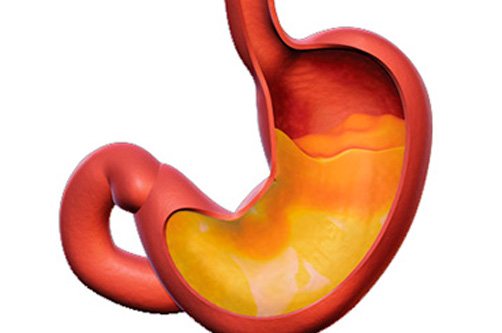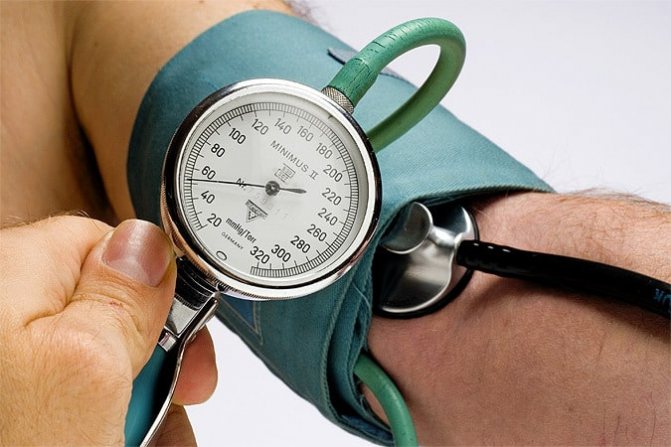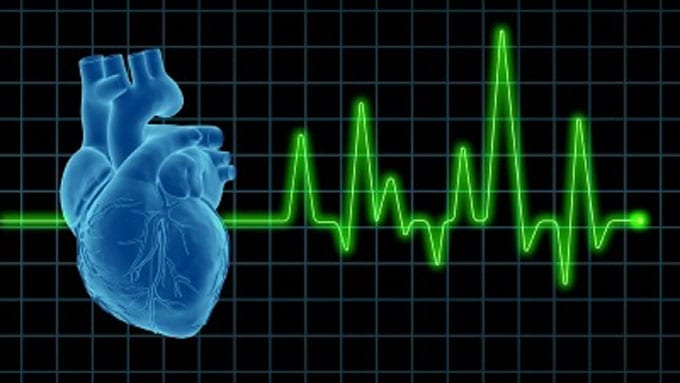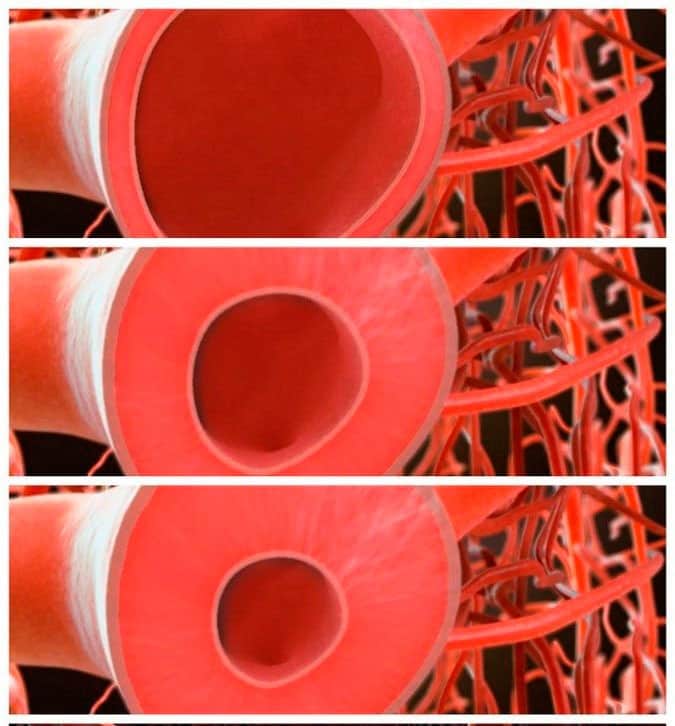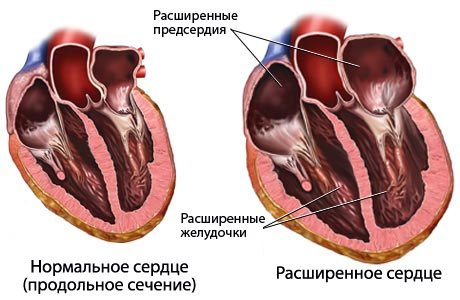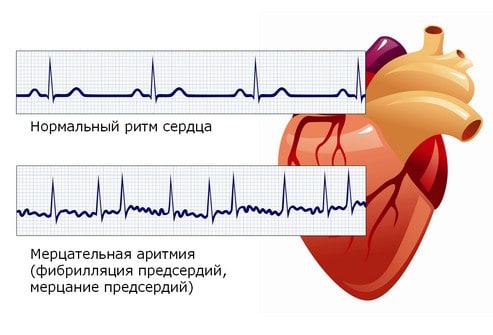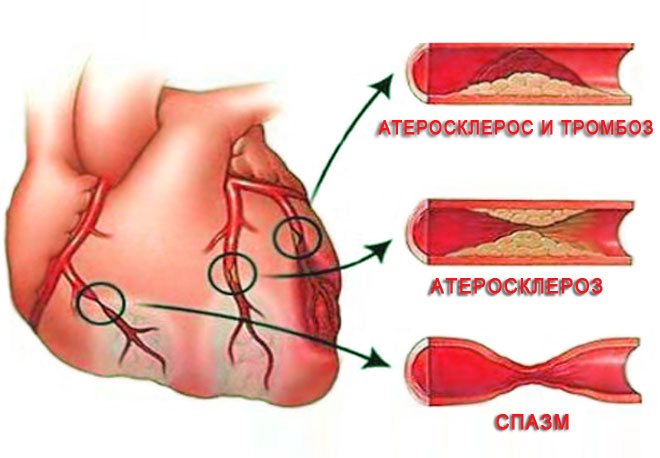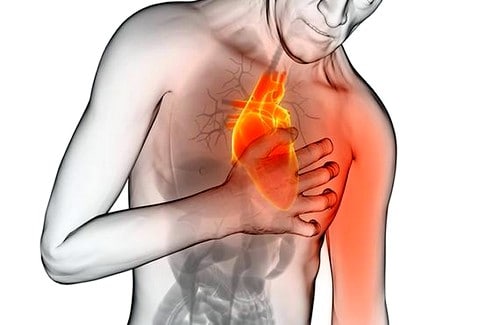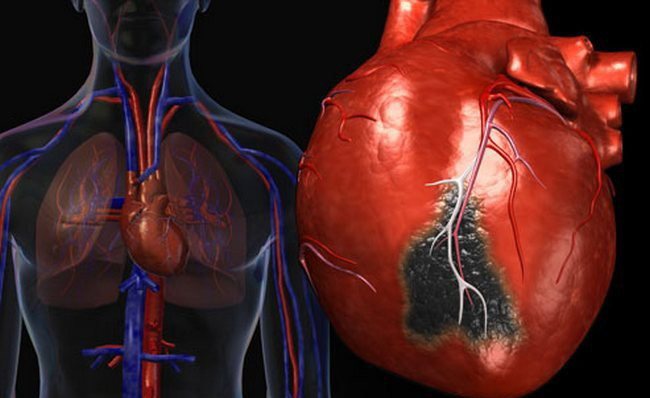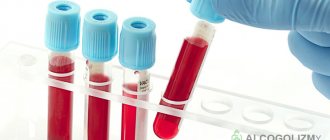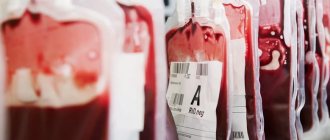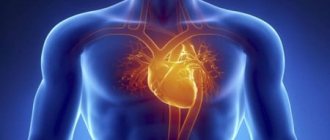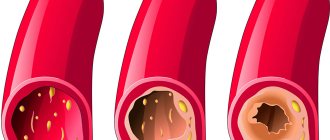Alcohol and vasoconstriction are closely related
The vast majority of people drink alcoholic beverages knowing their potential harm to the body. Some believe that small doses of alcoholic beverages are not dangerous and may even be beneficial under certain circumstances.
Doctors, on the contrary, advise to refrain from drinking strong drinks because they cause deterioration in health. The first blow is taken by the digestive, cardiovascular and nervous systems. However, the issue of alcohol consumption from a medical point of view does not have a clear point of view and remains controversial to this day.
The only thing the parties agree on is that significant doses of alcohol or frequent use undermine the health of the drinker. People suffering from cardiovascular diseases most of all should know what effect alcohol has and whether vasoconstriction or dilation occurs after taking it.
The effect of alcohol on vascular tone
How drinking drinks with elevated degrees will affect the human body depends on several circumstances:
- the amount of drink consumed and its strength;
- quality of alcoholic products;
- filling the stomach with food;
- individual characteristics of the body and reaction to ethanol.
First of all, the vessels, heart and brain will react to the appearance of alcohol in the blood. In the first minutes, vascular tone relaxes, which leads to their expansion and a decrease in blood pressure. The more alcohol, the faster the response will be, so strong drinks such as, for example, vodka have a much stronger effect than with a low alcohol content, as is the case with wine.
Important. Medical observations indicate that those people who prefer to spend their leisure time without alcohol are much less likely to seek help with complaints of cardiovascular diseases.

The effect of ethanol on the cardiovascular system is directly dependent on the amount of alcohol consumed
Food that is already in the stomach or comes with drinks can slow down the absorption of ethanol, but not significantly. This is due to the fact that lipids can easily dissolve in alcohols, so alcohol diffuses freely through the cell membranes in the stomach and ends up in the bloodstream, from where it is distributed throughout the body.
Once in the blood, ethyl alcohol directly affects the regulation of the diameter of the vascular lumen. At first, as already mentioned, the effect will be relaxing, which will ensure a decrease in pressure by several points of mercury. This is achieved for the following reasons:
- The diameter of veins and arteries increases slightly;
- Blood movement is facilitated due to vasodilation and is in correlation;
- Heart rate and pulse rate increases;
- The passage of blood through the heart cavities increases because it does not experience proper resistance and the ventricles do not have time to pump it completely.
The decrease in pressure will not last long, but at the same time, hypoxia processes are observed in the tissues of the extremities due to slow circulation. The reason for this negative phenomenon is a lack of blood supply to the cells and a decrease in gas exchange, a violation of the physiology of cytological metabolism.
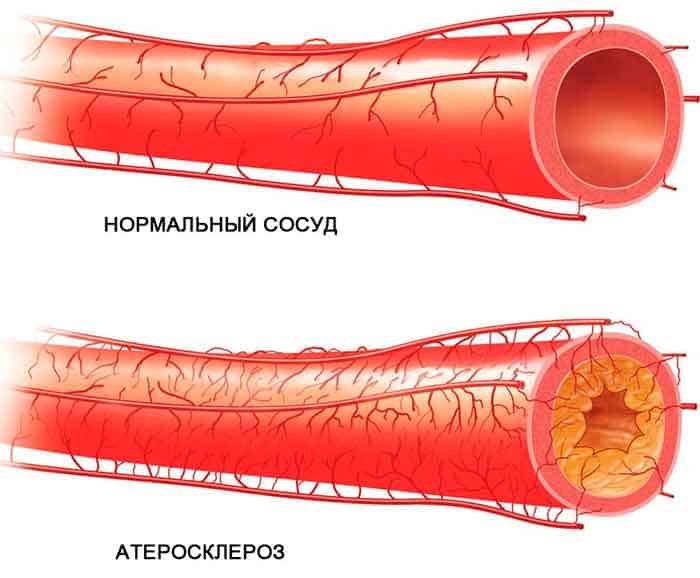
Alcohol promotes the formation of blood plaques
After the flow of alcohol stops or its effect decreases, it will change in exactly the opposite way - vascular tone will begin to narrow and pressure will increase, while blood circulation will sharply slow down.
Such events will occur every time you consume any alcoholic beverages, which has a negative impact on the functioning of the vascular system:
- There is an additional load on the vessels and they work faster;
- it turns out that it has a provoking effect on the manifestation of varicose veins, and if it already exists, its condition worsens;
- tissues that feed small capillaries are subject to temporary hypoxia;
- the risk of developing hypertension increases, and if a person suffers from high blood pressure, his condition worsens.
Important! Even minor anatomical changes in veins or arteries significantly affect the functioning of the cardiovascular system, which are clearly felt by a sick person.
To simplify the understanding of what happens to the human cardiovascular system when drinking alcohol, Table 1 shows all the main events step by step.
Table 1. Condition of blood vessels when ethyl alcohol enters the blood:
| Cause | Consequence | |
| When an alcoholic drink is drunk, the ethanol that enters the stomach begins to quickly be absorbed into the blood. | Vascular dilation occurs due to relaxation of their walls |
|
| The vessels remain dilated while new doses of alcohol are received | Blood pressure decreases or remains stably reduced |
|
| The heart strengthens its work | The pulse accelerates and tachycardia may occur |
|
| Due to weak pressure in small vessels, blood movement slows down somewhat | Hypoxia occurs in the tissues of the extremities, the cells do not receive a full set of nutrients, metabolic products are not completely removed, and gas exchange is disrupted. |
|
| Stopping the entry of alcohol into the human body | As soon as a new dose of alcohol stops entering the blood, vascular tone will begin to increase, which will provoke an increase in pressure. The time it takes for your blood pressure to return to normal depends on the amount of alcohol consumed. |
|
Alcohol consumption can provoke thrombosis due to damage to the surface membrane apparatus of red blood cells, which provokes their aggregation with subsequent adhesion. In the future, with constant changes in the vascular lumen, there is a risk of blood clots breaking off, which is a significant threat to health and can have serious consequences.
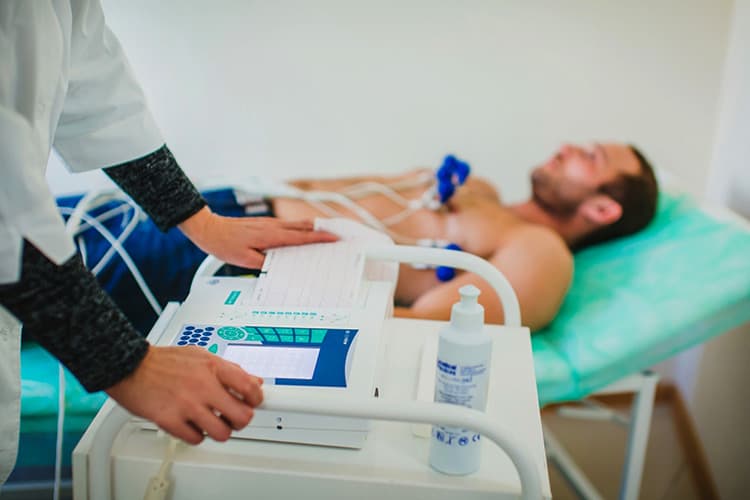
Cardiogram is the first analysis indicating cardiac pathologies
Regulation of vascular tone
Vessels in the human body are hollow elastic tubes through which blood flows. They permeate all tissues and organs. They are the main transport system through which nutrients and oxygen dissolved in the blood are supplied to the periphery and tissue metabolic products and carbon dioxide are removed. Dissolved in the liquid fraction of blood are mineral salts, gases, hormones, and enzymes, without which chemical reactions in the body are impossible.
Vascular walls consist of several layers of different tissues of different types. The number and thickness of layers depends on the location and significance of the vessels:
- In arteries, the walls consist of an internal (intima), middle smooth muscle and outer connective tissue layer. Their main role is to maintain constant blood flow. It is carried out by contracting and relaxing the smooth muscles of their middle layer.
- Veins lack a smooth muscle layer, so they cannot maintain their tone on their own. Their main task is to remove “waste” blood from tissues and organs.
- Capillaries are the smallest vessels, consisting of only one thin layer, through which substances participating in various metabolic processes and chemical reactions easily pass.
The tone of the arterial walls is regulated by the nervous system and humoral mechanisms. Various chemicals (hormones, drugs, minerals, vitamins and other chemicals) act as humoral regulators of arterial tone. Ethyl alcohol (ethanol) also belongs to the humoral regulators of vascular tone.
What effect does alcohol have on the heart?
Any doctor, even not a cardiologist, will agree with the opinion that health depends on the right way of life and the complete abandonment of bad habits. These simple rules are the basis for the prevention of cardiovascular diseases.
The effect of alcohol on the heart muscles and blood vessels has a significant impact. For example, arrhythmia appears after consuming a significant one-time amount of alcoholic beverages, and tachycardia appears in many people even with medium or small doses. At the same time, lovers of recreation with alcoholic beverages often complain of pain in the left side of the chest during a hangover.
Such people have a significant likelihood of developing heart failure, the main signs of which are as follows:
- during physical or active work, a person experiences difficulty breathing and shortness of breath;
- sweating increases noticeably;
- My legs begin to swell.

The appearance of shortness of breath is one of the signs of heart failure
An additional load on the heart is the increased heart rate under the influence of ethanol and the additional synthesis of adrenal steroid hormones, which it stimulates, as well as fluctuations in blood pressure.
If the amount drunk is equivalent to 100 grams. vodka or more in terms of alcohol content, then in this case the heart rate will be increased for 5-7 hours. It is clear that such deviations from the norm do not lead to anything good. With regular alcohol consumption, the heart wears out faster and is more susceptible to the diseases listed in Table 2.
Table 2. Heart diseases that occur with frequent alcohol consumption:
| Disease | Brief description of the pathology | Image |
| Cardiomyopathy | Morphological and anatomical deformation of the structure of the muscle tissues that form the heart, caused by constant interruptions in contraction and heart failure |
|
| Arrhythmia | Heart rhythm disturbance |
|
| Cardiac ischemia | Pathologies of the cardiac myocardium, which are caused by a decrease or cessation of its blood supply |
|
| Angina pectoris | Heart pain occurs when blood flow to an area of the heart muscle suddenly stops |
|
| Acute coronary syndrome | Exacerbation of a stable course of coronary artery disease, which can lead to a heart attack or even death |
|
Important! Persons with heart disease are not recommended to drink alcohol due to the high likelihood of developing a crisis, which can lead to serious consequences and even death.
You should consult a doctor if the following signs appear in the morning of the next day after drinking alcohol, which usually occur in combination:
- increased heart rate;
- the appearance of shortness of breath or a clearly noticeable lack of air;
- dizziness;
- pain or discomfort in the heart area, as well as other abnormalities.
People who often drink strong drinks experience an increase in heart size as shown in this photo and therefore it is called an alcoholic heart, which in medical terms is a manifestation of cardiomyopathy.
This occurs due to the enlargement of the cardiac septa separating the atria and ventricles, causing deliberate enlargement of the cardiac cavities. This phenomenon does not necessarily require long-term chronic drinking. All pathological changes occur under the influence of the breakdown products of ethyl alcohol.
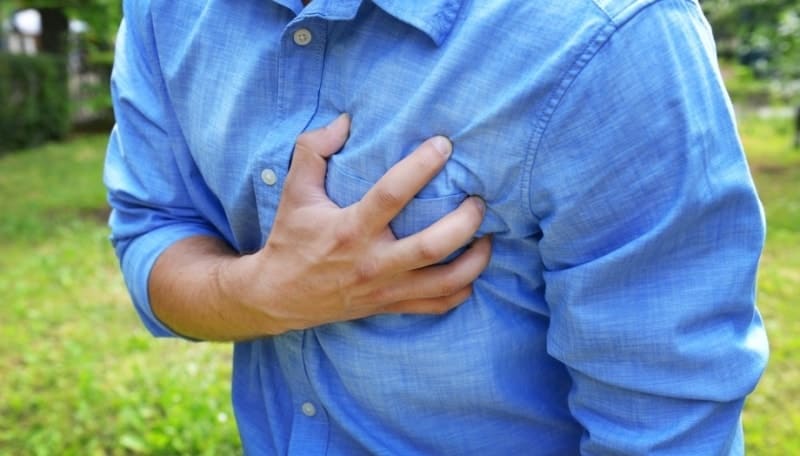
If you experience pain or discomfort in the cardiac area, you should immediately see a cardiologist
Treatment of heart disease requires mandatory abstinence from consuming even small doses of alcohol because, as can be seen from what is written above, the appearance of ethanol in the blood causes an increase in rhythm, the occurrence of tachycardia or arrhythmia, but the most dangerous and difficult to treat is the anatomical pathology of histological structures.
At the same time, not only the cavities, but also the vessels of the heart are overgrown with layers of connective tissue, which thickens in direct proportion to the level of the disease, which creates significant difficulties for oxygen and trophic metabolism. Hypoxia occurs, which, if prolonged, can cause atrophy of cardiac tissue of varying severity.
Long-term effects of alcohol
Alcohol and blood vessels interact somewhat differently during alcohol abuse. If alcoholic beverages are consumed frequently and in large quantities, then ethyl alcohol does not have time to break down into the final decomposition products - carbon dioxide and water. As a result, acetaldehyde accumulates in the blood and tissues.
Long-term exposure to alcohol on blood vessels quickly leads to disruption of autoregulation of blood pressure. The vascular walls become thinner, their permeability increases, as a result of which the liquid fraction of blood (plasma) enters the tissues.
A paradoxical effect occurs: against the background of general swelling of the subcutaneous tissue, the volume of circulating blood decreases. As a result, dehydration of the body occurs, although in fact there is enough water in the body.
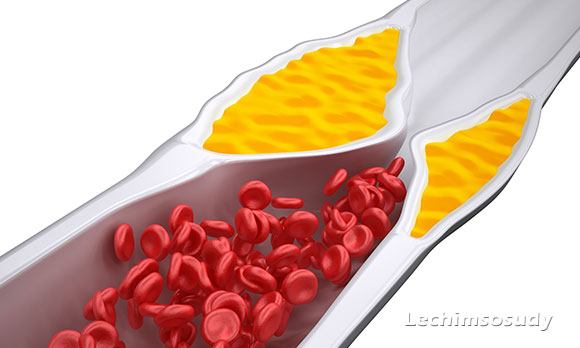
Ethanol is toxic not only to blood vessels, but also to the pancreas and liver. Long-term consumption of large amounts of alcoholic beverages disrupts lipid metabolism. As a result, the level of cholesterol and triglycerides in the blood increases, which settle in the vascular walls in the form of atherosclerotic plaques. Atherosclerotic damage to the walls of blood vessels makes them inelastic, brittle, and rigid. Such vessels cannot respond normally to changes in blood pressure.
Acetaldehyde, when present in tissues for a long time, has a capillary-toxic effect: the walls of the capillaries become thinner, and their permeability increases. The tissues surrounding the capillaries become saturated with blood cells and become visible under the skin and mucous membranes. These star-shaped formations are called telangiectasias and are often found on the body of alcoholics.
Telangiectasia due to alcohol abuse also appears due to alcoholic cirrhosis of the liver, which leads to an increase in pressure in the portal vein system of the liver. Liver tissue, deformed from ethanol abuse, mechanically compresses the portal vein and disrupts the movement of blood through it. As a result, venous blood stagnates, leading to stretching of the veins flowing into the portal vein of the liver, with subsequent deformation. As a result of prolonged venous stagnation, the liquid part of the blood leaks from the vessels into the abdominal cavity. Thus, alcoholics develop ascites.
How does alcohol affect blood vessels in the brain?
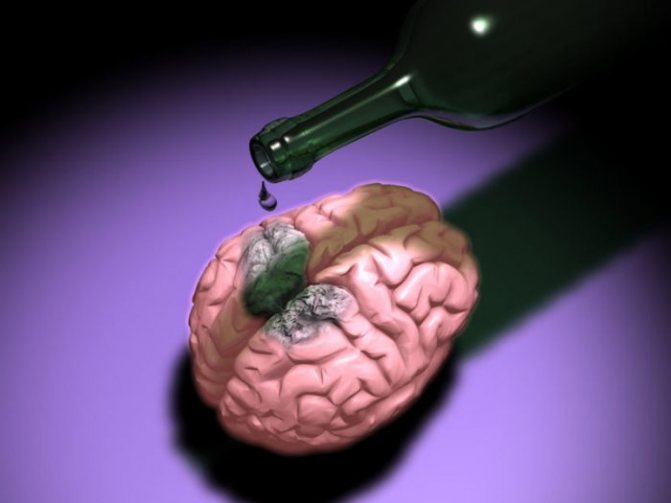
Alcohol negatively affects the functioning of blood vessels in the brain
The brain contains about 15 billion cells of nervous tissue of different structures, which require full blood circulation for nutrition and gas exchange to function. The presence of sufficient amounts of glucose and oxygen are necessary conditions for the functioning of this important organ.
Both the heart and blood vessels of the brain suffer from the negative effects of ethyl alcohol contained in alcoholic products. Recently, doctors have registered an increase in people with signs of cerebral atherosclerosis, and as their observations show, frequent consumption of strong drinks plays a significant role in the development of the disease.
Moreover, the age of patients is rapidly getting younger, which undoubtedly worries medical workers. For people suffering from high blood pressure, the risk of developing a hypertensive crisis remains. This is highly likely to result in a stroke, both hemorrhagic and ischemic.
It should be noted that even a slight narrowing of blood vessels can cause blood cells to stick together into clots and even thrombi, which is dangerous in itself. Blockage of blood vessels causes oxygen starvation, and if a nerve cell is left without oxygen, it dies in less than ten minutes.
However, these are not all possible consequences. A significant danger will arise if the areas of the brain that regulate the tone of the veins and arteries, as well as those responsible for hormonal levels and the endocrine system, are damaged. When the walls of blood vessels become more permeable due to a decrease in their density, cerebral edema may occur.
In addition to the negative effects mentioned above, the effects of alcohol on the blood vessels of the brain can cause:
- problems with concentration and memory;
- mental pathologies;
- cognitive impairment;
- loss of coordination and others.

Significant doses of alcohol cause cerebral vasospasm
Presence of certain diseases
If alcohol, even in small “preventive” doses, has a certain effect on the blood vessels of a healthy person, then it is difficult to predict its effect on a patient with certain diseases of the heart and vascular system.
Hypertonic disease
In people with persistently high blood pressure levels, the vascular tone regulation systems are initially impaired, and concomitant use of alcohol with hypertension medications impairs the regulation of blood pressure levels.
In hypertensive patients, taking even small doses of alcohol usually causes an extremely short-term dilation of blood vessels with a sharp subsequent spasm. This can cause an uncontrolled surge in blood pressure and a hypertensive crisis.
Chronic kidney disease
The kidneys are one of the main organs involved in the regulation of blood pressure and vascular tone. With certain kidney diseases, vascular tone becomes uncontrollable, and so-called renal or renal hypertension occurs:
- Stenosis or narrowing of the renal arteries - congenital or acquired.
- Diabetic kidney damage caused by high glucose levels.
- Chronic glomerulonephritis is a complex group of kidney diseases of an autoimmune and toxic nature.
- Chronic intoxication with drugs, poisons and heavy metals.
- Chronic inflammatory kidney diseases - pyelitis, pyelonephritis, severe urolithiasis.
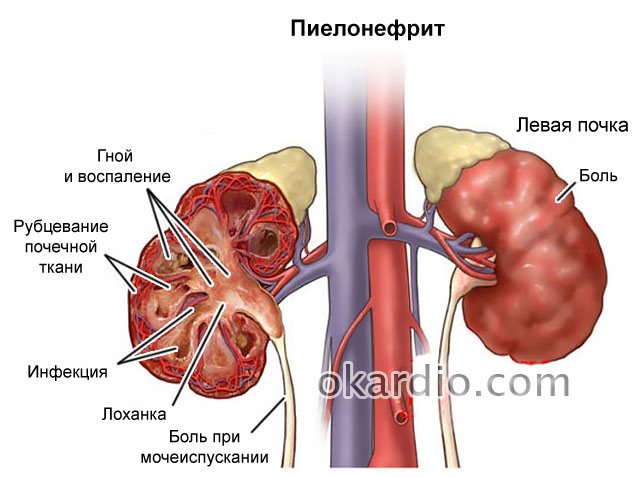
Drinking alcohol in such patients harms the kidneys in two ways: a direct toxic effect on the renal parenchyma and secondarily due to dehydration syndrome. The vascular bed responds with rapid and pronounced vasospasm and a jump in blood pressure.
Vascular atherosclerosis
Atherosclerosis mainly affects the arterial vascular unit. The disease involves the deposition of cholesterol and calcium salts on the inner layer of the arteries. They become dense, lose elasticity, and their lumen narrows. Such vessels quickly lose control, and their tone changes little under the influence of the nervous system and biologically active substances, including alcohol.
Read also: Phenibut with alcohol consequences
The catch is that alcohol increases blood pressure in other ways. An increase in pressure during atherosclerosis is dangerous due to the rupture of an inelastic vessel or a critical narrowing of its lumen. The patient is highly likely to have a heart attack—death of a tissue area. The most common infarctions occur in the brain (stroke), liver, spleen, intestines and heart.
The effect of alcohol on the blood vessels of the legs
If we consider the negative impact of ethyl alcohol on the lower extremities, then there is no doubt that the vessels take the first blow. Many have noticed that after a heavy feast they experience swelling of varying degrees of severity, which clearly indicates the effect of ethanol.
Firstly, if blood circulation is impaired (in this case we are talking about its slowdown), the outflow of fluid is disrupted, and under the influence of gravity it concentrates in the legs. Secondly, in small vessels, pressure fluctuations cause the development of hypoxia, which has a negative, and in some cases, detrimental effect on cellular and tissue structures. Therefore, with chronic alcoholism, gangrene can develop, and this already threatens partial amputation.
Note. With a single dose of a large amount of strong alcohol, temporary failure of the lower extremities may occur.
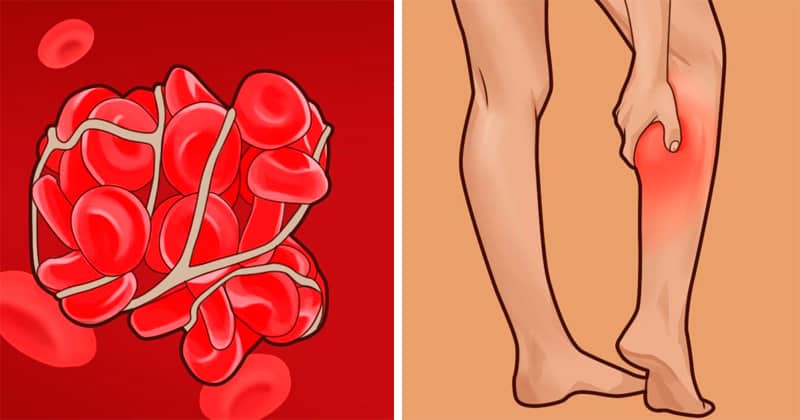
Ethanol can cause blood clots in the lower extremities
Ethanol enhances the functioning of the excretory system and provokes increased urination, as the body tries to quickly remove harmful substances (ethyl alcohol and its breakdown products). For this reason, the water balance is disturbed, the blood becomes thicker and therefore its circulation is complicated.
Pain and cramps in the legs that may appear during this period are caused by the leaching of calcium ions along with urine. However, these signs may also indicate negative processes caused by disorders of the nervous system, and these are the first signs of probable leg failure in the foreseeable future if a person does not give up alcohol.
Important. If there are symptoms indicating disturbances in the innervation of the legs, then you should stop drinking even minimal doses of alcohol, because the conduction of the nerve impulse may not be restored.
Vascular restoration
It is not easy for people who have been drinking alcohol for many years to restore vascular tone. Positive results can be achieved if you follow the recommendations below:
- It is important to exercise regularly. It is necessary to start with light exercises, since the blood vessels and heart, “worn out” under the influence of alcohol, may not be able to withstand the stress.
- You should give up bad habits - drink less strong tea and coffee, and don’t smoke.
- A contrast shower helps increase vascular tone.
- You should consult a doctor who will recommend suitable medications or dietary supplements; many herbs also have a beneficial effect on blood vessels and the heart.
- It is very important to give up fatty, salty, smoked and other unhealthy foods. The diet should contain a lot of fresh vegetables and fruits rich in vitamins and microelements.
Restoring blood vessels and the heart after quitting alcohol can take a long time. At the same time, it is important to completely give up alcohol and take care of your health.
Sources:
https://okardio.com/ostalnoe/alkogol-i-sosudy-401.html https://lechimsosudy.com/kak-alkogol-vliyaet-na-krovoobrashhenie-i-sosudy/ https://prozavisimost.ru/alkogolizm /vred-alkogolya/alkogol-i-sosudy.html
Tips for reducing the harmful effects of alcohol on the cardiovascular system
For those who want to reduce the negative impact of ethyl alcohol on the body, the easiest way is to reduce its consumption, but as practice shows, not everyone succeeds. Even knowing about the negative consequences of drinking alcoholic beverages, this does not stop.
Quite often it happens that initially a person intends to drink very little, but after several tens of milliliters of alcohol, willpower weakens. Especially the loss of a sense of proportion is more typical for men than for women.
Below are instructions for actions and rules, compliance with which will help reduce the negative effects of alcohol and slow down its penetration into the circulatory system:
- You should never drink alcohol on an empty stomach. As soon as ethanol gets on the mucous membrane, it is quickly absorbed into the blood and can injure the internal epithelium;
- You should not mix alcohol of different strengths, as this causes a strong blow to the cardiovascular system and can cause mental disorders;
- Don't use alcohol to cope with stress. Indeed, alcohol can reduce the emotional background by affecting the nervous system. This, firstly, is fraught with the development of alcohol dependence during hard work, and, secondly, it increases the load on the heart, and it wears out much faster and its lifespan is reduced. This is explained by the fact that in addition to the increased hormonal levels in a stressful situation, excess secretion of adrenal hormones, provoked by the influence of ethyl alcohol, is added;
- When choosing an alcoholic drink, avoid cheap products because a low price is usually a sign of poor quality. Products that contain high-quality alcohol that has undergone multi-level purification or wines prepared in compliance with all conditions will never be cheap;
- You should not drink a lot, and it is best to avoid drinking alcohol altogether for people suffering from heart rhythm disorders or changes in blood pressure.

Do not drink low-quality alcohol - it is very harmful!
For each person, the effect of alcohol on the body is strictly individual and will depend on many factors: age, gender, individual sensitivity and many others. Therefore, it is important to know your dose of alcohol, which allows you to relax without exposing your cardiovascular system to overloads that can lead to loss of health.
Important. The effect of alcohol is strictly individual, however, it should be noted that with regular use of even small doses, the body will begin to get used to it and the pressure will decrease to a lesser extent.
Myths regarding alcohol consumption
Alcoholic drinks do more harm to the body than good. Although many believe that drinking one or two glasses of alcohol daily has a beneficial effect on the body. Wine helps you relax and relieve stress for a while, but after some time a headache may appear and even greater fatigue may set in.
Alcohol can relieve a headache for several hours by dilating the blood vessels, but after they narrow, the migraine will become even stronger than before. If you drink even a small amount of alcohol every day, then instead of having a beneficial effect on the body, heart problems may begin.
Alcoholic drinks contain ethanol, which changes the speed of blood movement through the capillaries, which is why, depending on the amount drunk, they narrow and expand. Drinking alcohol every day can cause constant headaches and tinnitus due to constant pressure surges.
Can alcohol be used for medicinal purposes?
Persons suffering from hypertension or frequent brain spasms practice drinking small doses of alcohol to lower blood pressure. In this case, you should know not only what alcohol constricts blood vessels, but also that at first the blood vessels will dilate under the influence of ethanol.
Light natural low-alcohol drinks, such as wine, have a gentler effect on the body than strong ones. But the latter also have slight differences. For example, the effect of vodka will be somewhat different than cognac, which contains tannins and tannins. But first of all, it should be clearly understood that ethyl alcohol is the main active agent that regulates vascular tone and cardiac activity.
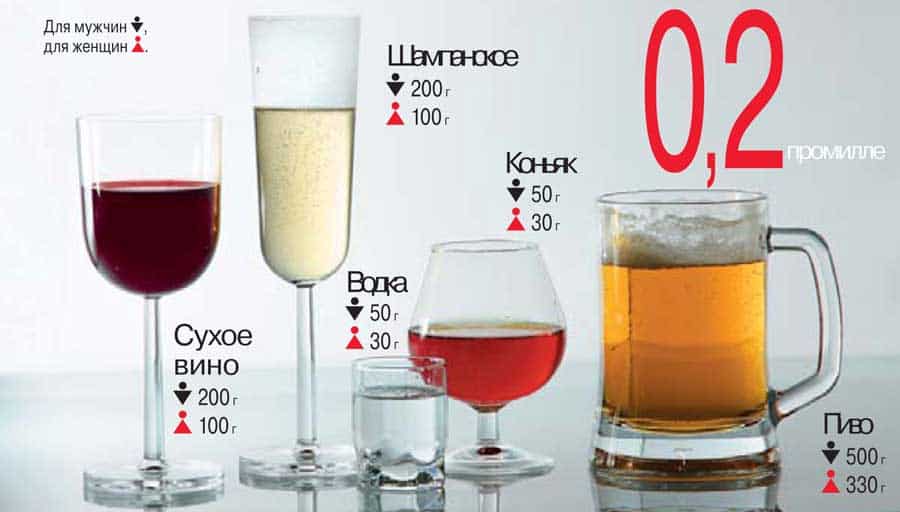
Recommended doses of alcohol after which blood pressure will decrease and not increase
Each time ethanol enters the blood, the blood vessels will first expand, and then after some time they will narrow and the heart rate will increase. The greater the frequency of such changes, the more the cardiovascular system will wear out, and the occurrence of health disorders cannot be ruled out.
If a person with high blood pressure regularly consumes even small doses of alcohol to reduce vascular tone and alleviate his condition, he needs to take into account the addictive effect of the body, so a fixed dose will not be enough and will have to be increased.
As a result, the pressure will increase over time. At the same time, the development of alcohol dependence cannot be ruled out. Therefore, you should not fight a headache with a glass of vodka or a glass of wine if you have drug therapy at hand. You can watch the video in this article about all the negative aspects of the effect of ethyl alcohol on the body and consolidate the material you have read.
Should be considered! Ethanol in the body stimulates the adrenal glands, which begin to secrete steroid hormones in excess, causing the heart to beat faster, so its lifespan in a healthy state is reduced.
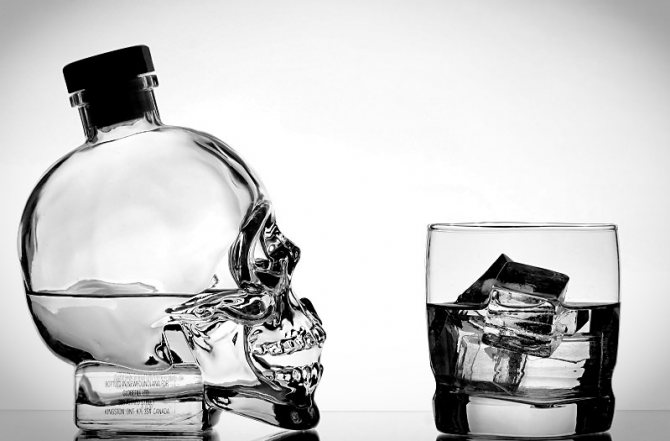
For people suffering from cardiovascular diseases, drinking alcohol is dangerous to health and life
What happens to the heart and blood vessels with constant drinking of alcohol?
With regular consumption of alcohol-containing drinks, the heart accumulates a lot of fat, the tissues become more flabby, premature aging of the organ is observed, and a deterioration in its normal functioning is observed. There are high risks of developing hypertension . Characteristic symptoms:
- persistent and prolonged increase in blood pressure (140/90 or more);
- numbness of fingers and toes;
- excessive sweating;
- decreased performance, fatigue;
- dysregulation of vascular tone;
- swelling of the face, arms and legs;
- frequent migraines, dizziness.
The person will become more irritable and often feel sleepy during the day. At night, on the contrary, attacks of insomnia may occur. With high blood pressure, there is a high risk of developing atherosclerosis. This is a chronic disease caused by a violation of lipid-protein metabolism, excessive formation of cholesterol plaques in the lumen of blood vessels. This can cause them to become completely blocked.
Atherosclerosis often becomes a prerequisite for the development of coronary artery disease. The pathology is characterized by impaired blood supply to the myocardium (the muscular middle layer of the heart, which makes up its main part). The patient needs a large amount of oxygen, which can only be provided by a healthy lifestyle, proper nutrition and frequent exposure to fresh air. Exacerbation of the disease leads to a heart attack, its chronic manifestations are characterized by a feeling of discomfort in the chest.
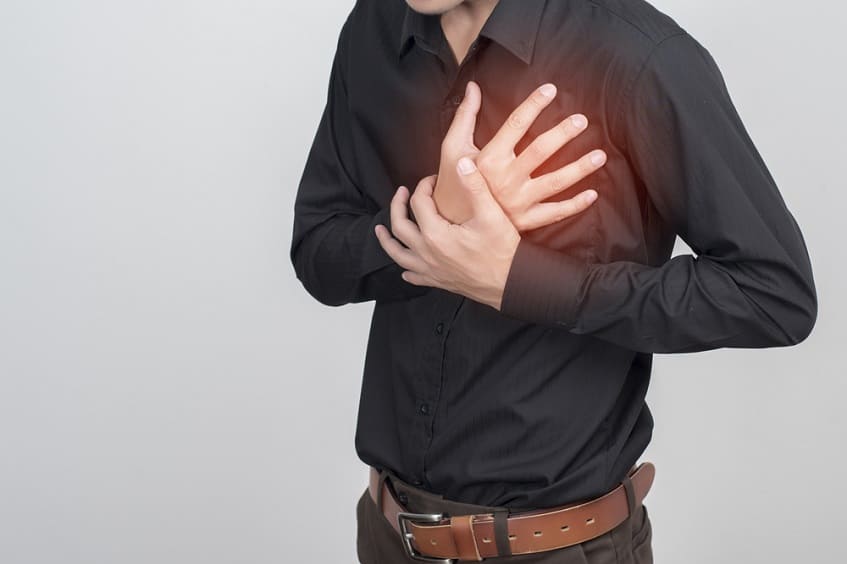
How not to harm the body or acceptable consumption standards
The pronounced harm of the drink manifests itself intensely when consumed in unmeasured quantities.
Rated beer intake is acceptable, but the instructions are as follows:
- First of all, it is important to choose the “right” drink. Chemical compounds concentrated in beer cause greater harm.
- The consumption rate for a quality drink for men is 200-500 ml per day.
- The maximum permissible limit for women is 300 ml, because beer alcoholism develops faster in women.
- It is better to give preference to unfiltered beer. A high-quality drink will cause less harm to blood vessels and the entire body.
- Consuming intoxicating and non-alcoholic beer is prohibited for pregnant and nursing mothers, as well as people with chronic pathologies of internal organs.
- You should not drink beer every day, even in regulated doses. It is important to maintain an interval of 2-3 days between doses.
If the described consumption standards are observed, the harm to blood vessels and other internal organs will be minimal.
It is known whether beer dilates blood vessels. Indeed, the drink leads to a one-time dilation of blood vessels, but after a short period of time, a narrowing of the blood elements occurs and can happen.
What effect does alcohol have on the body: does it constrict or dilate blood vessels? The answer to this question should not be taken as a reason to solve problems associated with low or high blood pressure. The influence exerted on the human body by ethanol, which is part of alcohol, largely leads to changes in the walls of blood vessels. The more alcohol you drink, the less the effect of lowering your blood pressure will be.
It is generally accepted that drinks containing alcohol, which dilates and constricts the blood vessels of the brain, are divided into 2 types:
- Blood pressure lowering: cognac, white wine, vodka.
- Increases blood pressure: beer, champagne, red wine.
For people suffering from high blood pressure, strong drinks in large quantities are strictly contraindicated. Alcohol lovers in most cases suffer from diseases of the cardiovascular system. Alcohol consumption by hypertensive patients, who experience frequent increases in blood pressure, causes a sharp narrowing of blood vessels. As a result, serious disturbances in brain activity occur.
Review of the 7 most popular drinks
The use of specific drinks, which, in addition to alcohol, contain other components, has even more nuances.
Red wine
This is what happens to blood vessels when drinking red wine:
- wine dilates the lumens of the arteries and slightly reduces pressure;
- contains antioxidants quercetin and resveratrol, which protect against premature aging and help resolve cholesterol plaques and blood clots; antioxidants are found only in low-alcohol drinks;
- increases the amount of “good” cholesterol in the blood;
- according to one version, it helps destroy certain types of cancer cells, thanks to ellagic acid;
- relieves inflammation and fights tumors, thins the blood and prevents platelet aggregation, helping to protect against thrombosis, thanks to resveratrol;
- reduces blood sugar levels and appetite in case of excess weight, helps avoid the occurrence and development of type 2 diabetes;
- in the fight against vitamin deficiency, anemia, blood loss, it is a source of fructose, organic acids, vitamins, and a large number of essential microelements; improves carbohydrate, nitrogen and mineral metabolism;
- unlike sugary drinks, it reduces the likelihood of kidney stones and fights them if they already exist.
Doctors have long noticed that the French who regularly drink red wine are less likely to suffer from cancer and other diseases. But proponents of this theory do not always mention two important factors:
- We are talking only about natural, unsweetened and unfortified red wine. This wine is not to everyone’s taste, but, alas, only it has healing properties.
- When talking about the “regular” consumption of a “glass of wine”, many do not take into account the genetic, age and other individual characteristics of a person. Regularly does not mean three times a day: for a Russian, for example, depending on genetic predisposition, gender and age, consuming 1-3 times a week is considered regular. And a “glass” of wine is not 200 or 300 g, but according to various opinions, 50-150 g of wine per serving.
What does alcohol do to the blood vessels and body of pregnant women and the fetus?
Alcohol in any quantity or form is contraindicated for pregnant women. It negatively affects the fetal organs that are not yet fully formed and strengthened, and its mental development. The embryo may experience oxygen starvation of the brain. Women who drink have children born with:
- irregular skull shape;
- spherical eyes;
- underdevelopment of the jaws;
- sexual dysfunction.

And this is not to mention what alcohol does to the heart and blood vessels of the woman herself. Pregnancy is a stress on the body. Pregnant women may experience tachycardia, develop varicose veins, and decrease immunity. It is important that a woman becomes aware of the harmfulness of alcohol and the colossal harm to her offspring.
